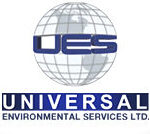Mould
What is Mould?
One of the main consequences of moisture problems in a home is mould. Mould is part of a group of micro-organisms called fungi that also include mushrooms and yeasts. Mould is familiar to most people as food spoilers on items such as bread or fruit. Mould is nature’s decomposer in the food chain. However, if allowed to grow inside dwellings, mould can be a problem.
Mould Q&A
Mould can cause:
Unsightly stains
Damage to paints, wood, drywall, ceiling tiles and fabrics
Damage to personal items
Allergies
Illness
While mould itself does not cause damage to the structure of a house or building, it is a sign of potentially problematic moisture conditions that may eventually rot out wood framing and corrode structural steel.
Some symptoms:
discolouration on surfaces such as walls, ceilings or furnishings;
black marking or accumulation at the bottom of window frames and on windowsills
stains on carpets
mould on drapes and backs of furniture against exterior walls
stains on personal items close to affected areas such as storage boxes and clothing
musty smells
rotting wood
Mould requires moisture and a food source to grow. Some mould species can start growing if the RH of the indoor air is high enough while others require water.
To avoid most mould problems, keep materials dry by controlling moisture, providing ventilation and keeping indoor surfaces at high enough temperatures to prevent condensation.
If mould is present, clean the affected area as soon as possible, and identify and fix the source of moisture that allowed the mould to grow.
Condensation on windows.
Rotting windowsills.
Damaged gypsum board and bubbled or flaking paint.
Musty smell.
Mould on walls.
Mouldy drapes, carpets or furniture.
Mould in closets.
Poorly set and controlled humidifiers.
Excessive moisture from damp basement or crawl spaces.
Many moisture-producing activities by occupants — cooking, bathing, washing.
Too many people/pets in the home.
Uncovered aquarium.
Large number of plants.
Firewood stored inside.
Poor air circulation between rooms or within a room.
Cold surfaces due to inadequate insulation.
Large air leaks at electrical fixtures and outlets, window frames, etc.
Closed drapes preventing warm room air from warming window surfaces.
Closet contents stuffed against colder exterior walls.
Rooms kept too cool, programmable thermostats setback too aggressive.
Inadequate ventilation, ventilation equipment not used.
Air conditioner poorly maintained condensation on cold water pipes during the summer.
Source: Canada Mortgage and Housing Corporation
No, unlike Lead and Asbestos, there are no limits set by regulatory agencies such as Health Canada or WorksafeBC. This because there is a variability in sensitivity to microbial exposure among the human occupation and there is limited scientific data on the exposure to indoor Mould, Furthermore, Moulds exist indoors as well as naturally occurring outdoors.
Apart from damaging the house, elevated levels of Mould spores indoors may pose a serious health hazard. The good news is that the majority of indoor Moulds are not likely to affect the structural integrity of the house and therefore removing and cleaning up the Mould would restore the home to its original condition. Hire a qualified professional to assess the extent of Mould contamination, identify the causes and estimate how much it would cost to clean up and rectify the problem. Mould remediation should be performed by a qualified contractor who is familiar with Mould remediation guidelines.
Consult a qualified professional now at
EPOCH ENVIRONMENTAL CONSULTING
for more information.
Affiliate Companies



